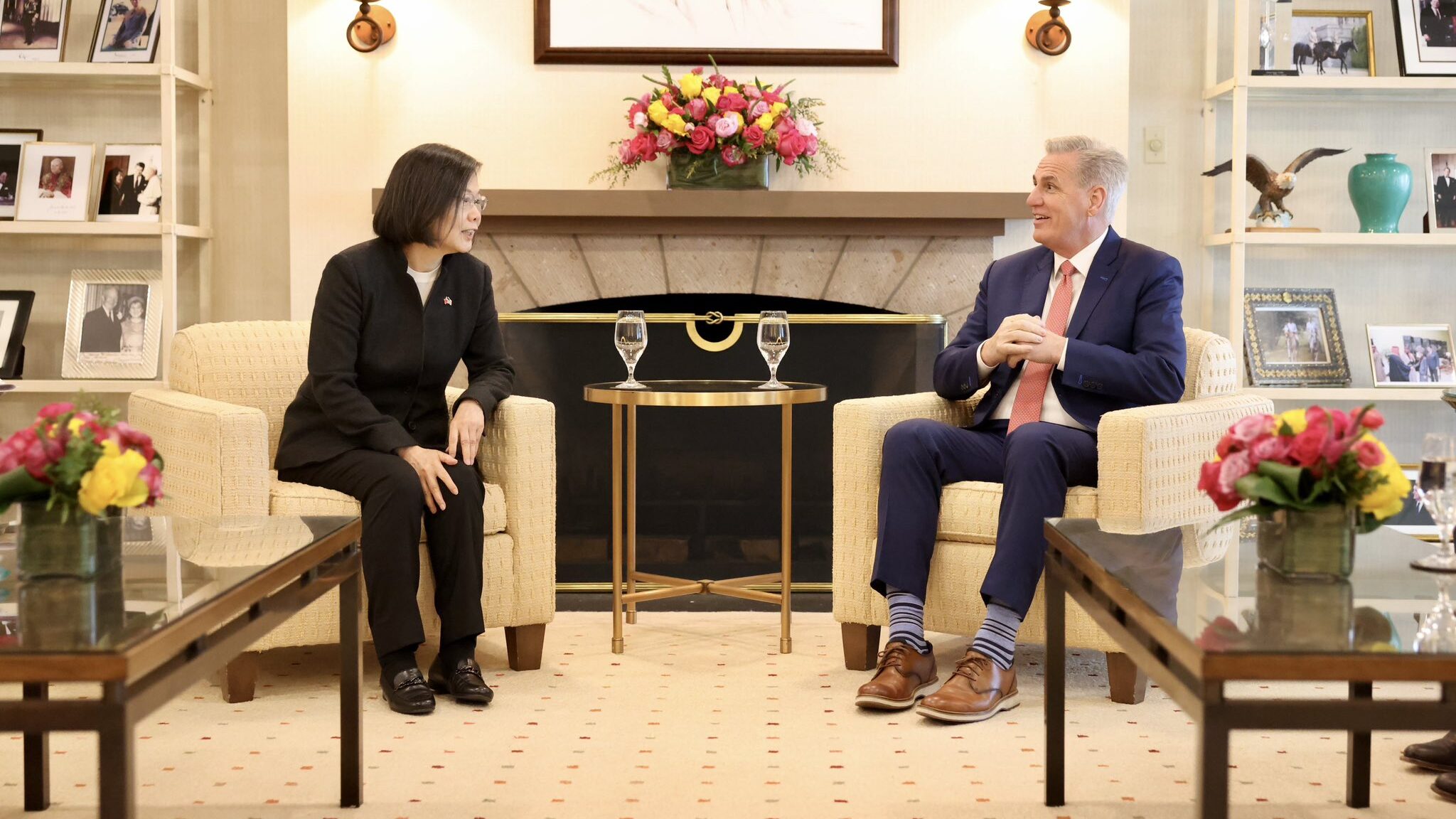In recent months, a flurry of intense, panicky media attention on Taiwan has followed each time China launched military exercises around the island. It happened again a few days ago, following the meeting between US Speaker of the House Kevin McCarthy and Taiwanese president Tsai Ing-wen. Just like last August, when McCarthy’s predecessor Nancy Pelosi visited Taiwan, China responded with a series of military exercises intended to simulate a blockade.
There was less coverage of the military exercises this time, in part because they took place over the Easter holiday, and over a shorter period, of just three days. They did not take place as close to Taiwan as before, but new records were still set in terms of the number of warplanes and navy vessels deployed by China.
After the end of the drills, China announced its intention to set up a “no-fly zone” 85 nautical miles north of Taiwan from April 16th to April 18th, then later backtracked from the plan to reduce the length of the “no-fly zone” to half an hour. It is to be seen if China shifts course again. Some were quick to comment on China’s relative restraint compared to last year’s military display, though there was always the possibility that new exercises would be announced as soon as the first drills had ended. But people have to rush to get their hot takes out, however premature their assessments might be; such is the unfortunate effect of our clout-driven media discourse.
These episodes always make for a busy time for me, because I’m a frequent commenter on Taiwanese politics. I’ll be dashing off articles while also making television and radio appearances, or I might be seen shouting down Chinese nationalists on air. [Amazing, must-see TV–Ed.] Even though it would be residents of Taiwan, like me, who’d be first in the line of fire if it came to military action by China, and I’m often called on to represent the “Taiwanese perspective”, I often find myself arguing that the world is not, in fact, on the verge of a shooting war over Taiwan.
The economies of both the US and China are reliant on the Taiwanese semiconductor industry, and on key Pacific shipping routes near Taiwan. Though these and other economic tensions between the US and China are longstanding and well known, however, the hyperbolic claims that World War III is about to begin over Taiwan are indefensible. If China were to invade Taiwan, it would necessarily be known for months in advance, with troops massing on the coasts of China, much as we saw Russian troops gathering for many weeks before attacking Ukraine last year. Such movements would be detectable by satellite. An invasion couldn’t happen at the drop of a hat. And even if it were to happen, the weather conditions favorable for a beachhead invasion only occur a few times a year.
It’s strange that there is so little knowledge floating around out there about what is sometimes painted as an imminent and catastrophic conflict between two superpowers. Is this simply a matter of ignorance, or is it sensationalism, intended to drive commercial activity? International media, after all, is deeply commercialized. Quite possibly this kind of irresponsible talk of war is what it takes to survive–and profit–in the media business, no matter what the consequences may be, for all of us. Which just goes to show how this possibility is, in fact, not taken seriously at all.
No one is calling for the restoration of the borders of the Roman empire today, yet the fuzzy thinking that characterizes Western media’s conjectures regarding the “inscrutable East” see nothing absurd in claiming that 5,000 years of Chinese civilization could logically justify claims over Taiwan by China. Those most willing to make wild predictions regarding World War III tend to discuss the possibility in a strangely detached and abstract way–as if such a calamity would never impact them, but somehow remain safely “over there.”
In Western, English-language discourse, what takes place in “the rest of the world” is often brought up merely as a distant and largely irrelevant contrast to the West. In this sense, certain critics of Western empire reacted to the news of China’s recent military exercises with glee, as if this hostility were Taiwan’s just deserts for associating with the US empire, which has been Taiwan’s security guarantor against the threat of Chinese invasion for decades. I’ve seen such critics salivating over images of the potential destruction of Taiwan, having apparently forgotten that Taiwan is a real place, with living, breathing human residents.
This response maps neatly onto the tankies’ notions of an idealized China,which they regard as a utopian alternative to western capitalism. But even among them, these are fantasies of guilt in which the sole meaningful players remain those from the West. Taiwan can hardly avoid being keenly aware of the hazards of associating with the US, which backed Chiang Kai-shek’s dictatorial rule in Taiwan for decades, and which attempted election interference on behalf of the former authoritarian party, the KMT, as recently as 2012.
Western insularity persists in viewing “the rest of the world” as little more than a canvas upon which to project its own fantasies or anxieties. The routine will continue until journalists begin considering “the rest of the world” as fellow human beings sharing the same troubled planet.






